
PAM Health Neurorehabilitation & Motor Performance Laboratory (NMPL) Clinical Consortium
Paul Fullmer, M.S.
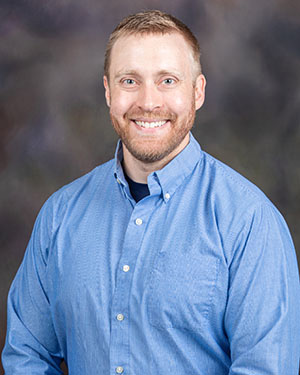 Paul M. Fullmer, M.S. is a lecturer in the Kinesiology program at the University of
Houston-Clear Lake. Prior to coming to academia, Mr. Fullmer worked as a Clinical
Exercise Physiologist in the Texas Medical Center, specializing in the care of neurological
and neurosurgical patients. He also previously served as an exercise scientist for
JES-Tech at NASA Johnson Space Center.
Paul M. Fullmer, M.S. is a lecturer in the Kinesiology program at the University of
Houston-Clear Lake. Prior to coming to academia, Mr. Fullmer worked as a Clinical
Exercise Physiologist in the Texas Medical Center, specializing in the care of neurological
and neurosurgical patients. He also previously served as an exercise scientist for
JES-Tech at NASA Johnson Space Center.
Mr. Fullmer earned his M.S. and B.S. at the University of Houston-Clear Lake in exercise
and health science and fitness and human performance, respectively. He holds a level
1 certification from USA Weightlifting and a Certified Strength and Conditioning Specialist
(CSCS) certification from the National Strength and Conditioning Association.
Zachary Bell, Ph.D.
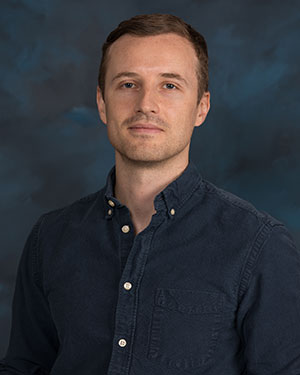 Dr. Zachary Bell is an assistant professor in the Department of Clinical, Health,
and Applied Sciences. He achieved his Ph.D. in Health and Kinesiology from the University
of Mississippi in May 2022.
Dr. Zachary Bell is an assistant professor in the Department of Clinical, Health,
and Applied Sciences. He achieved his Ph.D. in Health and Kinesiology from the University
of Mississippi in May 2022.
His doctoral research focused on skeletal muscle adaptations, specifically through
the application of blood flow restriction, and with efforts driven towards investigating
more practical means of blood flow restriction. His dissertation explored the cross
education of strength in the upper body, coupled with measures of post-activation
potentiation, and how these two factors might explain strength adaptations with resistance
training.
Dr. Bell subsequently worked as a postdoctoral researcher at McGill University in
Montreal, Canada for two years where he completed research within the Exercise Metabolism
and Nutrition Research Laboratory. He was involved with research that emphasized protein
metabolism and how muscle protein synthesis and breakdown changes during periods of
disuse, immobilization and beyond the fifth decade of life. These research studies
considered how protein supplementation and exercise might ameliorate such circumstances.
Dr. Bell is enormously passionate about teaching and developing the minds of his students.
He seeks to cultivate a classroom environment where his students are able to go beyond
textbook knowledge and instead try to use empirical evidence to draw their conclusions.
He teaches courses at both the undergraduate and graduate level focusing on exercise
physiology, clinical nutrition, and physical activity.
Isabel Woelfel, Ed.D.
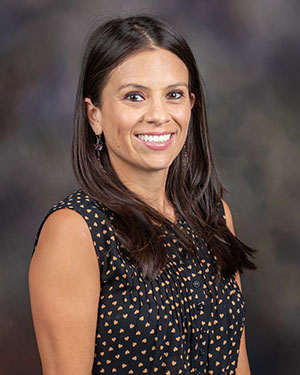 Isabel Woelfel holds a B.S., M.A., and Ed.D. in kinesiology. She has worked in the
fitness industry for the past 15 years. She is also a certified ACE health coach and
personal trainer, AFAA group fitness instructor, and ACSM Exercise Is Medicine specialist.
Isabel Woelfel holds a B.S., M.A., and Ed.D. in kinesiology. She has worked in the
fitness industry for the past 15 years. She is also a certified ACE health coach and
personal trainer, AFAA group fitness instructor, and ACSM Exercise Is Medicine specialist.
Dr. Woelfel's extensive experience as a group fitness instructor and personal trainer
reflects her passion for exercise promotion. Through her students and clients, she
has seen how regular physical activity can positively change people’s lives.
Dr. Woelfel's doctoral dissertation analyzed the effects of a 15-week virtual educational
Zumba fitness college course on motivation and enjoyment of physical activity. Using
a framework that integrated concepts of intrinsic motivation and positive affect,
her study aimed to implement and evaluate a virtual educational Zumba fitness college
course as a potentially effective intervention to promote physical activity among
college students.
Dr. Woelfel aims to inspire our college students to strive to be healthy and reach
their potential. While making a positive difference in their lives, she seeks to educate
her students on health and fitness knowledge and empower them to be active and healthy.
William E. Amonette, Ph.D.
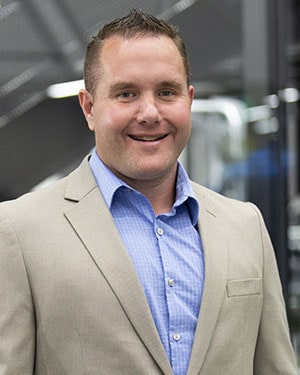 William (Bill) Amonette, Ph.D., is the executive director of the Health and Human
Performance Institute (HHPI). In this role he serves as the chief science officer
for HHPI, leading the vision and the strategic direction for research, programming,
and educational outreach. Amonette is also a tenured associate professor of exercise
science; his research identifies physiologic and mechanical factors that may predict
or limit human performance in populations ranging from professional and Olympic athletes
to patients with chronic diseases or neurologic injuries.
William (Bill) Amonette, Ph.D., is the executive director of the Health and Human
Performance Institute (HHPI). In this role he serves as the chief science officer
for HHPI, leading the vision and the strategic direction for research, programming,
and educational outreach. Amonette is also a tenured associate professor of exercise
science; his research identifies physiologic and mechanical factors that may predict
or limit human performance in populations ranging from professional and Olympic athletes
to patients with chronic diseases or neurologic injuries.
Prior to his work at UH-Clear Lake, he served at Wyle Life Sciences (NASA-JSC) as an exercise physiologist as well as an astronaut strength conditioning specialist and rehabilitation specialist. He was also a strength and conditioning coach for the Houston Rockets and Chinese National Basketball Team at the Olympic Training Center in Beijing, China. Amonette earned a Ph.D. at the University of Texas Medical Branch (UTMB) in rehabilitation sciences, with a research emphasis in clinical exercise physiology and endocrinology. Amonette is a senior editor for the Journal of Strength and Conditioning Research, an ad hoc peer reviewer for many biomedical science journals, and the co-director of the Low Carb Houston Conference.
Lewis K. Clarke, M.D., Ph.D.
Dr. Lewis Clarke is senior medical advisor in the HHPI and has a private practice clinic in Webster, TX, as a board certified physiatrist (or rehabilitation specialist) which is a specialty that treats patients with strokes, spinal cord injuries, multiple sclerosis, muscular dystrophies, neurologic diseases, musculoskeletal and sports injuries and chronic pain syndromes.
He initially received his Bachelor of Arts degree at Baylor University in Waco, Texas and then earned a Master of Science degree at University of Texas at Dallas in psychophysiology, biostatistics and neurophysiology. His interest in pharmacology and neurochemistry developed during these years led to acceptance into the Cell Biology program at University of Texas Southwestern Medical School of Biomedical Sciences where he completed his Ph.D. in cell biology and neurochemistry.
After completing his Ph.D., Dr. Clarke decided that the application of this basic science was best served in the area of clinical medicine; he then attended Texas Tech University School of Medicine where he earned his M.D. degree. Dr. Clarke moved to Atlanta, Georgia where he was completed his internship in internal medicine at Emory University School of Medicine after which he returned to Houston and completed his residency in Physical Medicine and Rehabilitation at Baylor College of Medicine. He founded a hospital in Webster, Texas for general physical rehabilitation medicine upon finishing his training.
Charles S. Layne, Ph.D.
Dr. Charles Layne is a senior science advisor in the HHPI and is a full professor of motor control in the Department of Health and Human Performance at the University of Houston's main campus. He is a founding member of the Center of Neuromotor and Biomechanics Research at UH. Dr. Layne is a specialist in the study of posture and locomotion among a variety of populations, including astronauts, healthy, young adults, individuals with cancer, and Parkinson's Disease. Recently, he has intensively investigated the movement characteristics of individuals with single gene mutation syndromes including Rett, Syngap1, Duplication and NGLY1.
He received his Bachelor of Science in Physical Education, Master of Education in Adaptive Physical Education, and PhD in Kinesiology at the University of Texas at Austin. After completing his doctorate, he served as an assistant professor at Kansas State University. He then served as the Laboratory Supervisor and Senior Scientist of the Movement and Coordination Laboratory at Johnson Space Center for KRUG Life Science (now KBR). Next Dr. Layne joined the University of Houston where he has served for the last 25 years, 16 of which he was the chair of the Department of Health and Human Performance.
He has supervised 16 doctoral students and multiple undergraduate interns, published nearly 100 scientific articles, and has been continuously funded in support of his research for over 25 consecutive years. He brings his expertise in sensory processing, biomechanics, and neuromuscular activation as well as a wealth of research design experience to the HHPI.
Anne Anders, Ph.D.
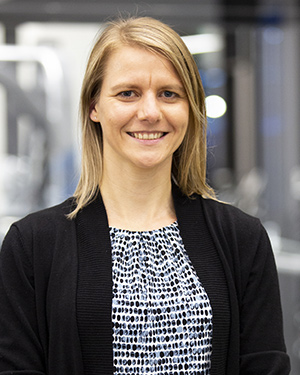 Anne Anders, Ph.D. is an assistant professor of economics in the College of Business
and a research scientist in the HHPI. In this role, Anders works to establish the
research infrastructure across all projects to tie personal health benefits to health
care expenditure savings. Moreover, longitudinally, she is interested in quantifying
the effect of preventive versus reactive care on personal health, wellness, quality
of life, and productivity with the intention of affecting health care policy.
Anne Anders, Ph.D. is an assistant professor of economics in the College of Business
and a research scientist in the HHPI. In this role, Anders works to establish the
research infrastructure across all projects to tie personal health benefits to health
care expenditure savings. Moreover, longitudinally, she is interested in quantifying
the effect of preventive versus reactive care on personal health, wellness, quality
of life, and productivity with the intention of affecting health care policy.
A former professional and collegiate soccer player, Anders' research also investigates how youth sport participation affects later life outcomes. She holds a B.S. in sports management and marketing from Seton Hall University and an M.A. and Ph.D. in economics from Clemson University. Although her degrees are in business, you will often find her in the laboratory collecting physiologic and biomechanical data or on the floor assisting with strength training and conditioning.
Jason Bentley, Ph.D.
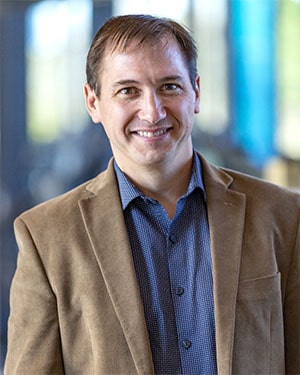 Jason Bentley is a biomedical engineer in the HHPI with an academic appointment as
a senior lecturer. An avid cyclist with multiple state championship time trials awards,
he worked previously as an engineer and scientist in the Exercise Physiology Laboratory
for Wyle Life Sciences (NASA-JSC). In this role, he investigated exercise countermeasures
to mitigate spaceflight induced muscle and bone loss.
Jason Bentley is a biomedical engineer in the HHPI with an academic appointment as
a senior lecturer. An avid cyclist with multiple state championship time trials awards,
he worked previously as an engineer and scientist in the Exercise Physiology Laboratory
for Wyle Life Sciences (NASA-JSC). In this role, he investigated exercise countermeasures
to mitigate spaceflight induced muscle and bone loss.
Bentley received an M.S. in physiology from the Medical College of Wisconsin and a B.S. in biomedical engineering at the Milwaukee School of Engineering. He earned his Ph.D. in Rehabilitation Sciences from the Graduate School of Biomedical Sciences at the University of Texas Medical Branch in Galveston, Texas in 2021. His doctoral dissertation explored physical activity motivation among breast cancer survivors; his goal is to identify targets for physical activity interventions aiming to improve long-term physical activity behavior.






